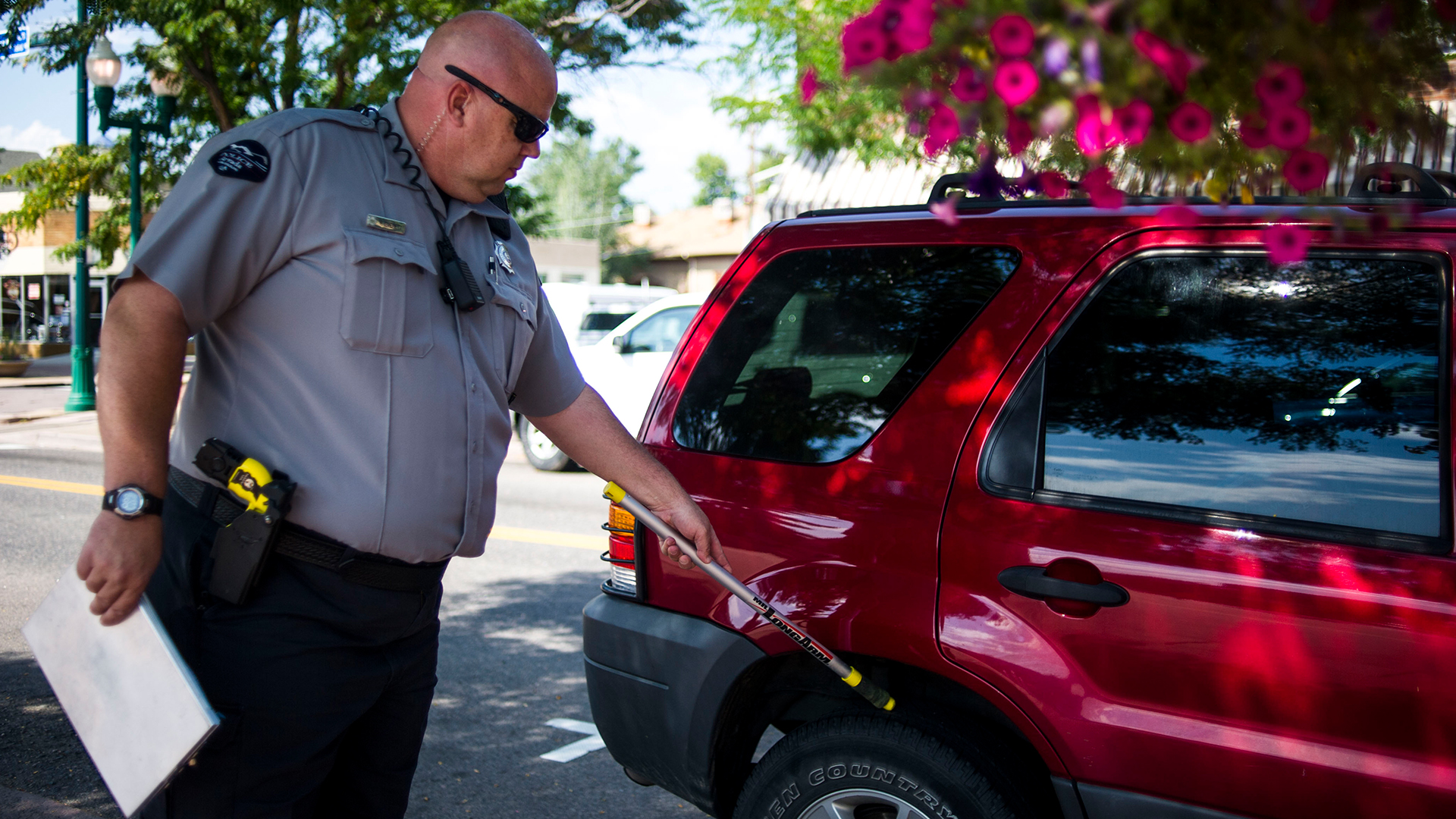

Tire chalking is a controversial method commonly used by police to enforce parking or simply watch how long someone has been parked at a certain spot. A new ruling by the U.S. Court of Appeals deems that this method of surveillance violates a citizen’s constitutional rights and cannot be used by police.
Specifically, the federal court ruled on Monday that chalking a tire directly conflicts with the Fourth Constitutional Amendment, the very same document used as protection against unlawful search and seizure, as well as certain forms of surveillance.
But just how did this particular ruling end up being the responsibility of the Sixth Circuit Court of Appeals to rule on? For the answer, we’ll need to travel back to 2014 and visit the town of Saginaw, Michigan.
Located about two hours north of Detroit, Saginaw is one of many U.S. cities in which police choose to enforce parking by chalking a tire. The year is 2014 when Alison Taylor, a court-described “frequent recipient of parking tickets,” began her love-hate relationship with the city’s parking enforcement. Over the next three years, Taylor would receive a total of 15 parking tickets, each issued by the same parking enforcement officer, and each time because her tire was chalked.
Taylor attempted to fight her tickets in court, each time losing. Eventually, the issue was raised to the Michigan Eastern District Court with Taylor alleging that the method of chalking violated her rights under the Fourth Amendment. The district court dismissed Taylor’s claim and sided with the city. However, Taylor wasn’t done yet.
In April 2017, Taylor brought her case to the U.S. Court of Appeals, arguing the same Fourth Amendment violation. The City of Saginaw filed to have the case dismissed and was denied. It later argued that the chalking was not protected under the Fourth Amendment, as citizens should expect to have less privacy in automobiles and the police did not require a warrant under the “community caretaker exception.” The court, meanwhile, wasn’t having any of that.
Ultimately, it was ruled that tire chalking is indeed a search under the Fourth Amendment and would require a warrant in order to execute as it would otherwise constitute as common-law trespassing.
The case has now been kicked-back to lower level courts to re-evaluate their rulings based on the determination that Taylor’s constitutional rights were violated.